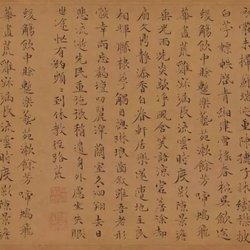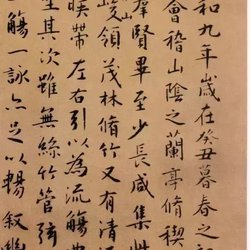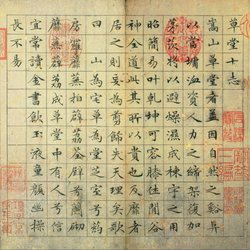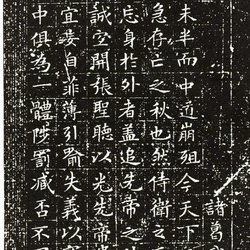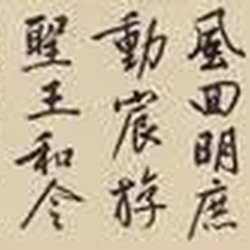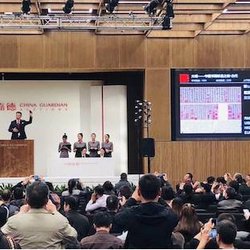Wen Zhengming is an example of Bo Fei's expertise in calligraphy. Wen Zhengming's lower regular script is the most accomplished. The main imitations are Wang Xizhi's "Huang Ting Jing", "Le Yi Lun", Zhong Yao's "Proclamation", Wang Xianzhi's "Thirteen Lines", etc. It can also be integrated into the small regular script of the Tang Dynasty to form a "warm, pure and exquisite" own style. style.
Wen Zhengming small regular script
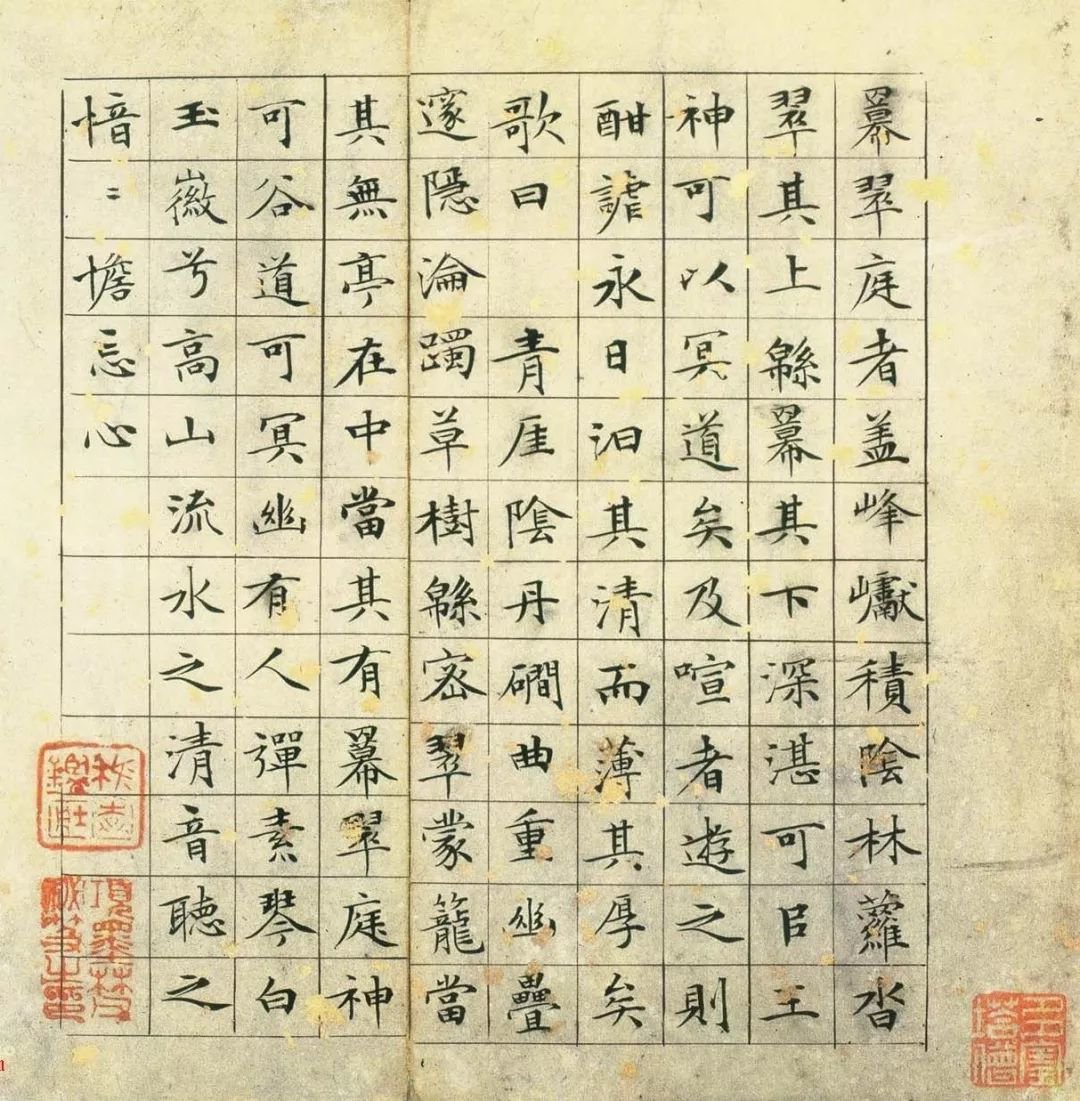
Wen Zhengming's official script works are not many, but he is quite proud of them. He mainly studied Zhong Yao, Liang Hu, etc. He sometimes wrote postscripts in official script, such as "Postscript Fan'an Shihu Poetry Volume", "Postscript Kangli Zishan Shu Li Bai Poetry", etc.; he also often wrote four-body, thousand-character prose (formal, cursive, official, and seal script); sometimes he wrote in large characters The official script is used as the introduction. His large-character official script is very different from his small-character official script.
Wen Zhengming's official script "Pictures of Along the River During the Qingming Festival"
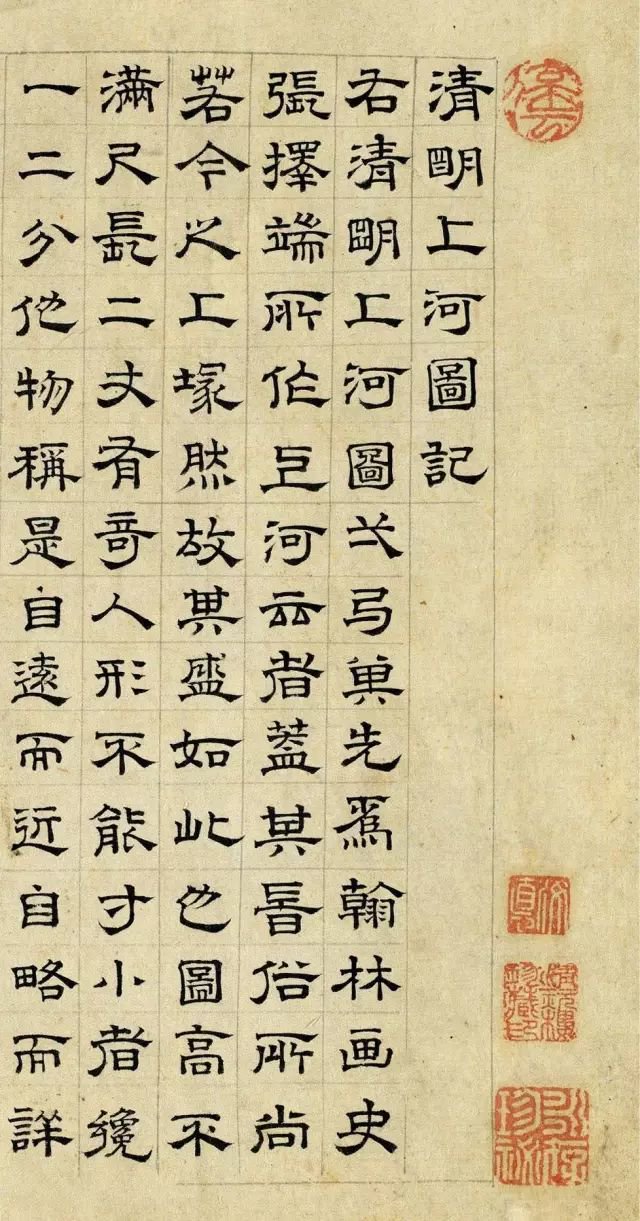
In addition, he once collected Han official script to write "Yun Yao of Han Li" (yun compiled by Zhu Yunming, collected by the National Library), which shows that he worked diligently on official script and spared no effort to promote this style. Although Wen Zhengming's official script is not the style of calligraphy he is best at, it is also a typical official script style of the Ming Dynasty, which may have something to do with this move. Wen Zhengming's seal script is considered a weak point compared with other calligraphy styles. However, in the Ming Dynasty when the trend of seal script writing was quiet, his seal script was still quite rare and precious. "Yiyuan Siyan" Since Wen Zhengming often wrote thousands of characters for daily lessons, his seal script has considerable basic skills.
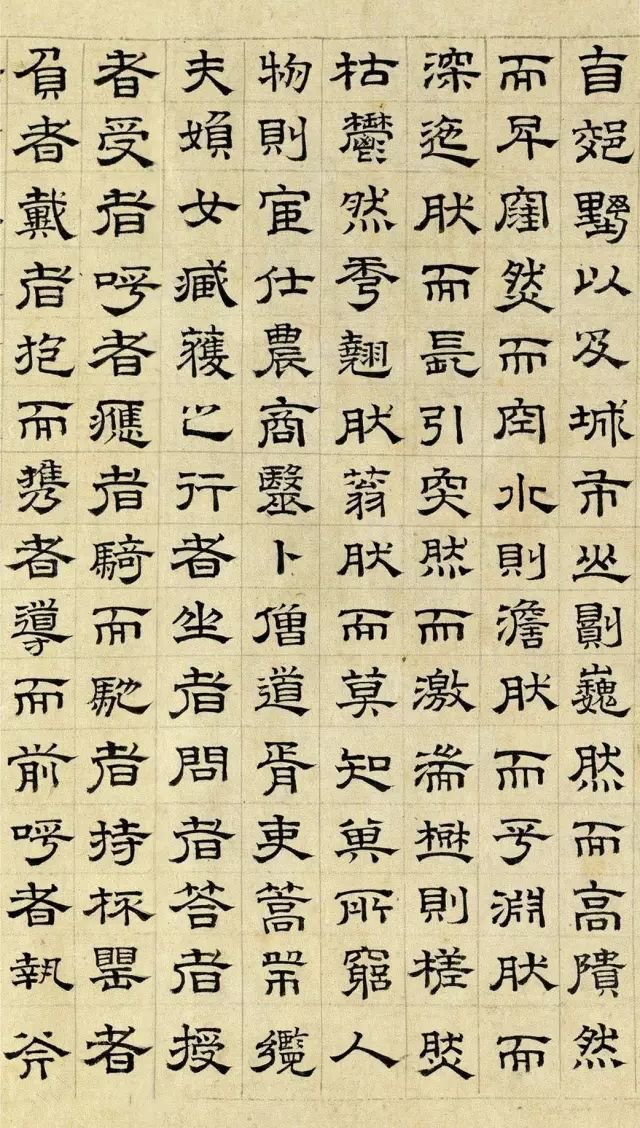
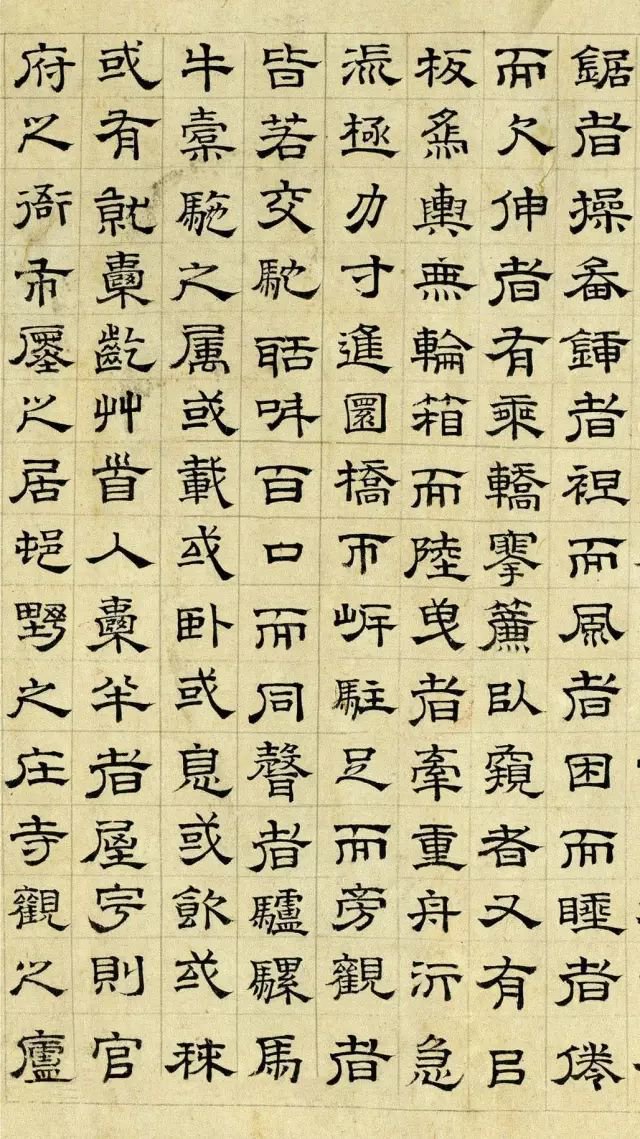
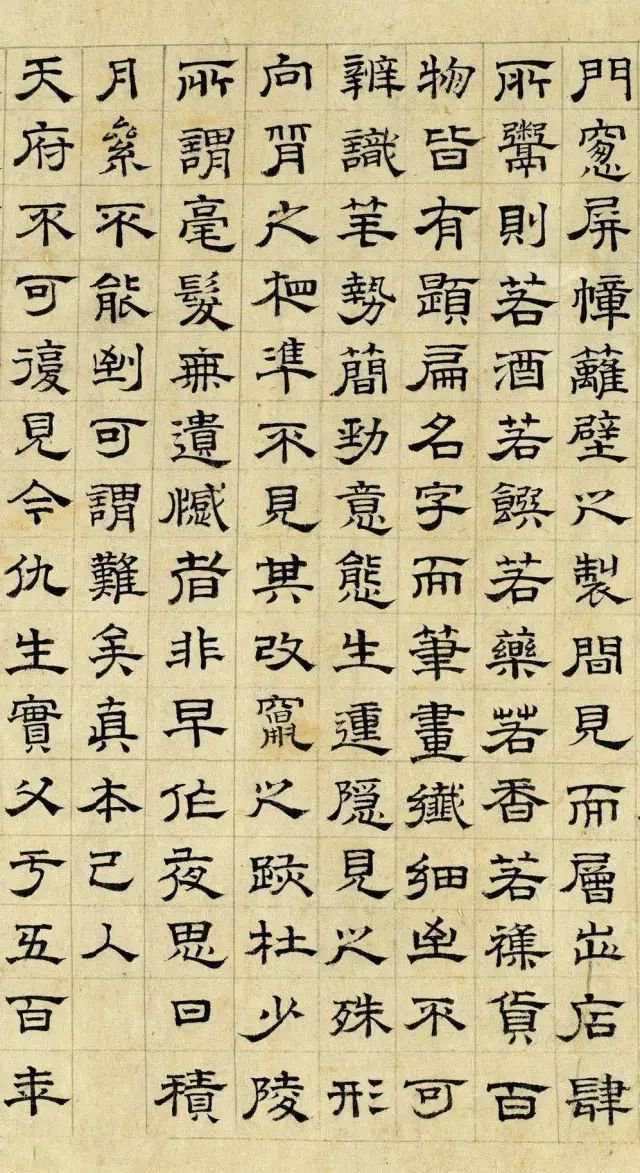
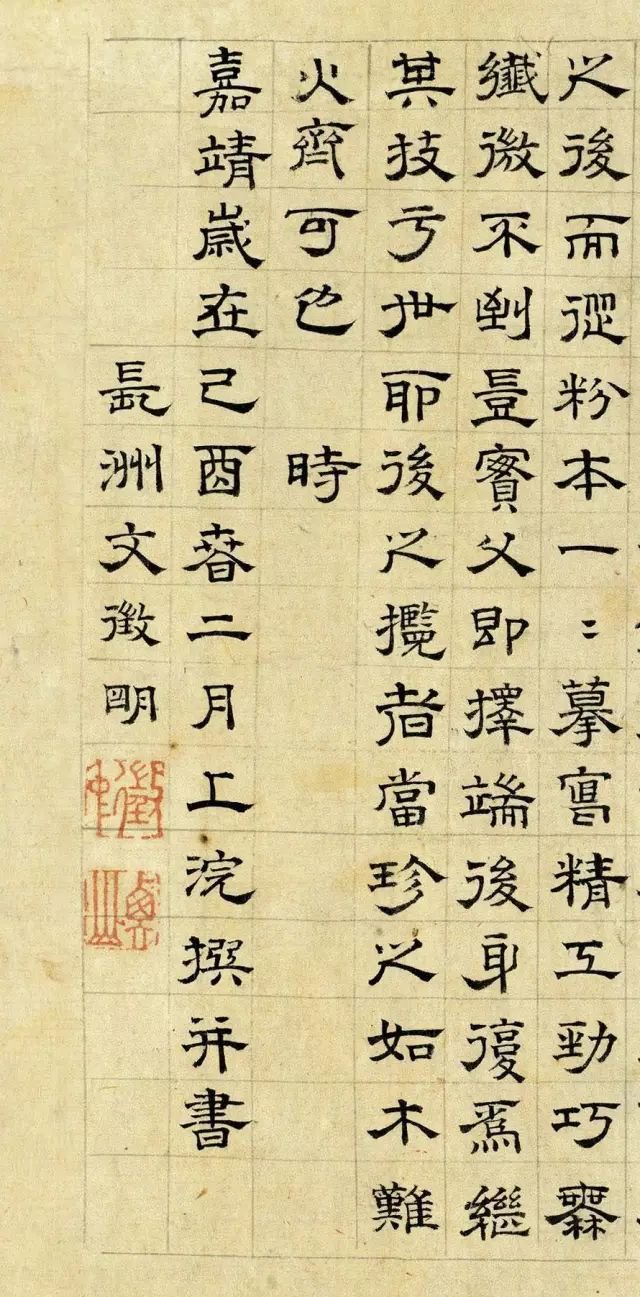
Appreciation of Wen Zhengming's official script works "A Picture Along the River During the Qingming Festival", written in February of the 28th year of the Jiajing reign (1549), was a copy of Qiu Ying's inscription on the official script of Wen Hengshan, 80 years old in Changzhou, collected by the National Palace Museum in Taiwan.

